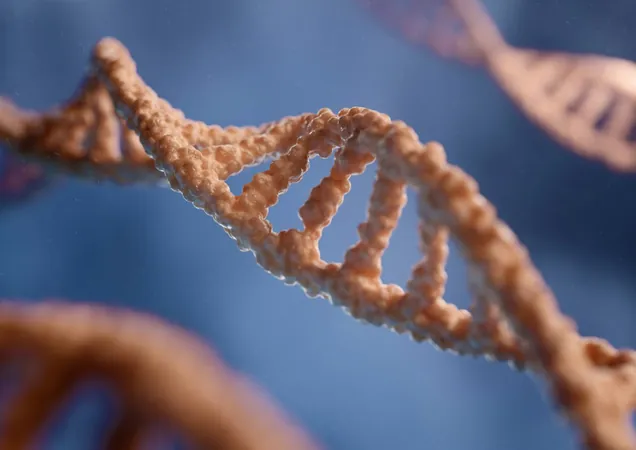
Revolutionary Breakthrough: Scientists Explore Gene Editing to Combat Down Syndrome, But Ethical Dilemmas Arise!
2025-09-15
Author: Sarah
In a groundbreaking revelation that could reshape our understanding of genetic interventions, researchers from Mie University in Japan have unveiled a pioneering approach to tackle Down syndrome. Using the powerful gene editing tool known as CRISPR, scientists have found a way to remove the extra copy of chromosome 21, which is responsible for this condition.
The CRISPR Revolution: A Game Changer in Genetics
CRISPR, a method honed by biochemist Dr. Jennifer Doudna, is hailed as one of the most significant scientific advancements of our time. This technique allows precise targeting and editing of DNA, presenting new possibilities for addressing the root causes of various genetic disorders—transforming the focus from merely managing symptoms to potentially curing conditions.
Understanding Down Syndrome and Its Implications
Down syndrome stands as the most prevalent chromosomal cause of intellectual and developmental challenges, affecting approximately 1 in 691 births. The potential application of CRISPR to this condition could revolutionize lives, but the implications of such powerful technology are vast and complex.
The Price of Progress: Financial and Ethical Concerns
While the prospects seem promising, the financial burden of gene therapies cannot be overlooked. For instance, the FDA-approved CRISPR treatment for sickle cell anemia runs an eye-watering $2.2 million per patient, while another gene therapy reaches $4.25 million. These staggering costs stem from extensive funding required for clinical trials, which can take years and substantial investment.
A New Frontier in Embryonic Gene Editing
Unlike current gene therapies that modify blood cells outside the body, the proposed treatment for Down syndrome would involve editing genes at the embryonic stage through in vitro fertilization (IVF). This raises the pressing question: who will have access to such transformative procedures? As concerns about affordability surface, experts stress the need for supportive measures—either by reducing production expenses or implementing government funding.
The Ripple Effect: Generational Consequences of Gene Editing
Editing the embryonic genome would not only affect the child but could also set off changes that echo through generations. As Dr. Danith Ly points out, even minor errors in gene editing can lead to significant ramifications for future descendants—raising profound questions about our moral responsibilities.
Navigating Ethical Gray Areas in Genetic Modifications
As the scientific community navigates this uncharted territory, discussions surrounding the ethical boundaries of CRISPR technology intensify. Dr. Wong-Noonan cautions against the potential slippery slope of 'correcting' genetic traits, urging us to carefully consider what should or shouldn't be altered in the human genome.
Conclusion: Embracing the Complexity of Genetics
While the excitement surrounding CRISPR and its potential to eradicate conditions like Down syndrome is palpable, the conversation is layered with ethical challenges and uncertainties. As Dr. Ly aptly notes, evolution thrives on diversity, and perhaps our next steps in genetic engineering should honor that complexity rather than seeking a singular, perfect solution.






 Brasil (PT)
Brasil (PT)
 Canada (EN)
Canada (EN)
 Chile (ES)
Chile (ES)
 Česko (CS)
Česko (CS)
 대한민국 (KO)
대한민국 (KO)
 España (ES)
España (ES)
 France (FR)
France (FR)
 Hong Kong (EN)
Hong Kong (EN)
 Italia (IT)
Italia (IT)
 日本 (JA)
日本 (JA)
 Magyarország (HU)
Magyarország (HU)
 Norge (NO)
Norge (NO)
 Polska (PL)
Polska (PL)
 Schweiz (DE)
Schweiz (DE)
 Singapore (EN)
Singapore (EN)
 Sverige (SV)
Sverige (SV)
 Suomi (FI)
Suomi (FI)
 Türkiye (TR)
Türkiye (TR)
 الإمارات العربية المتحدة (AR)
الإمارات العربية المتحدة (AR)